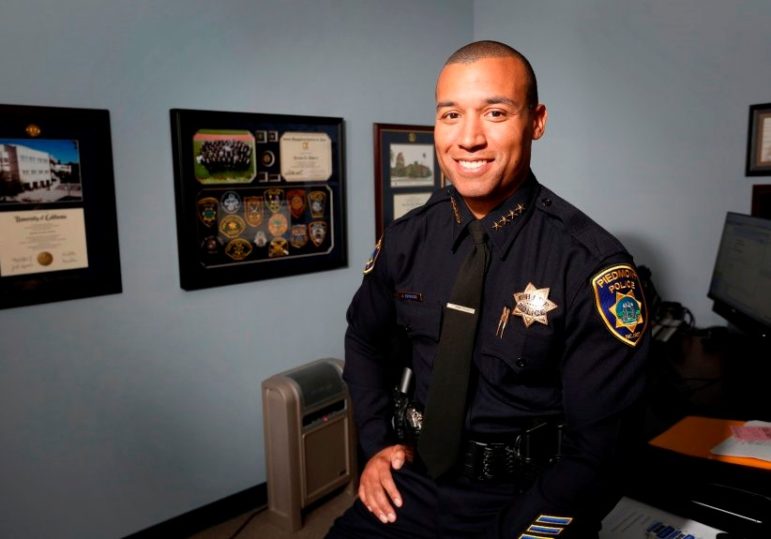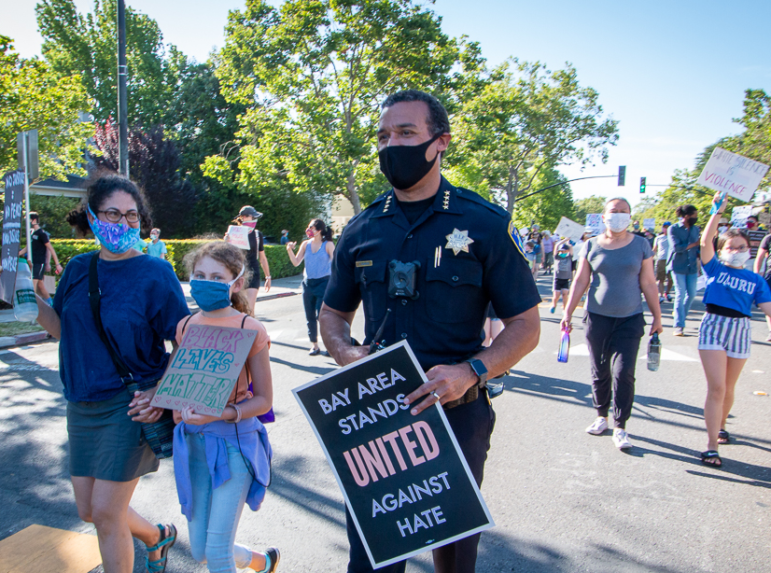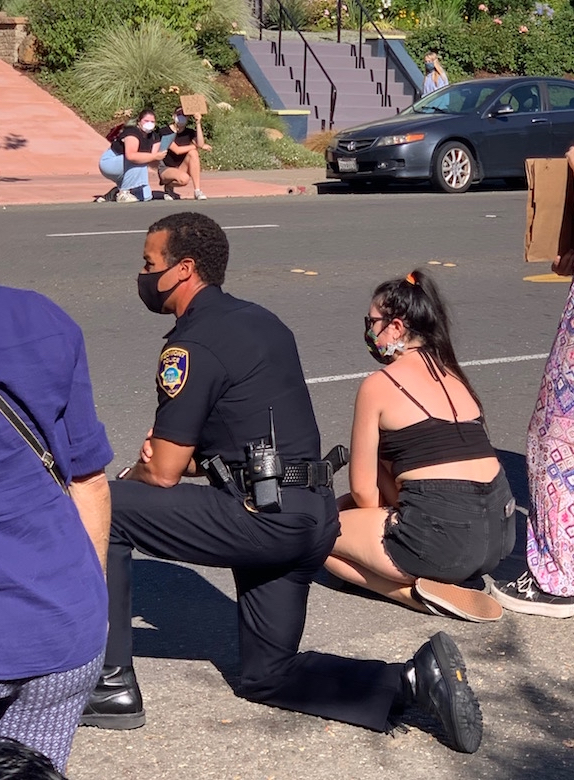
Jeremy Bowers became Chief of the Piedmont Police Department in 2016. He spoke to Exedra editorial adviser David Thigpen about policing in the aftermath of the George Floyd killing.
Q: The relationship between the public and police is going through sudden change. How is Piedmont P.D. coping with that?
A: Our profession is under intense scrutiny now, and rightly so. With my force, our efforts in greater awareness started long before the George Floyd tragedy. I put a lot of care into finding the right people. We also train in understanding implicit bias, crisis intervention, and our officers and our dispatchers train in how to respond to difficult calls.
Q: What was the reaction on the force to the George Floyd killing?
A: We have had multiple team meetings to discuss this and I could see the emotion in my officer’s eyes. I said to them I’m open as a chief to allow you to process the change that’s coming. But I also said there is one thing that is non-negotiable: if anybody saw that officer put his knee on Mr. Floyd’s neck and somehow tries to rationalize that, hand me your badge and gun now and go find a different job. We’ve discussed the fact that we need to be aware the pain isn’t just about the killing of George Floyd, but long standing, unaddressed racial issues in this country.
Q: What things are you seeing from the public side here in Piedmont?
A: This community is engaged as always, and in a place where they are focused and open. The level of street protests in Piedmont is unprecedented. There appears to be a real call to action to make change. The PADC, School Board and the City of Piedmont have been communicating. I have also had many folks who have reached out to me to ask questions and convey their concerns. That leads me to believe there’s a significant desire to look harder at our community.

Chief Bowers joins Piedmonters in a George Floyd solidarity march. 
Bowers takes a knee at a local march
Q: You’re an African American police chief supervising a mostly white force in a town that is nearly all white. What does that mean to you?
A: It’s an incredible opportunity and I’m extremely proud to be in this profession. My family sacrificed and my ancestors died so I could have the opportunity to hold a position like this. Whether I put this uniform on or off I’m a black man in this society. I have a great amount of responsibility from that perspective to ensure we are doing our part for the safety of everyone in our community.
Q: We’ve all seen around the country – and most notoriously in Central Park in New York recently – folks who call the police on black people for reasons that seem more about their own unrecognized racism than about any actual crime. How do you deal with such calls, which can sometimes end in tragedy?
A: We do get these calls and our dispatchers are trained to get information to determine if these are potentially bias-based calls. To do that they seek to determine what is suspicious about the person being called on? What are they actually doing? If they are not able to articulate this then we look extra closely at the need to respond. I say to residents and visitors, before you call the police, envision if the person you are calling about is Caucasian: based on what they’re doing, would you still call the police? If not, you may be acting on implicit bias.
Q: How do we as a community go forward from here?
A: First and foremost, I own, and my department owns our responsibility to carry the mandate that is placed on us; to make significant improvements. The key to our success or failure is how good a partner we are to the community. That means to provide safety, protection and fairness to everyone. It is a systems issue. We need education of our history and psychology and their impact in the real world. Moving the needle on this now is critical. Better community education in these areas is invaluable.